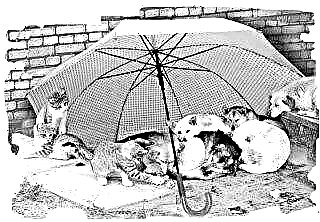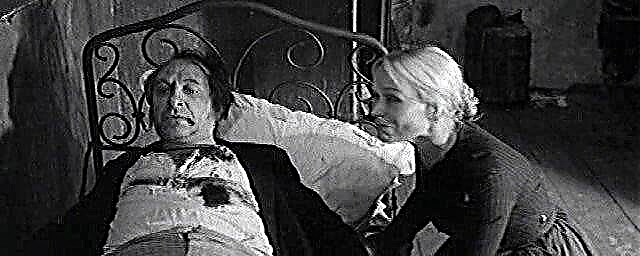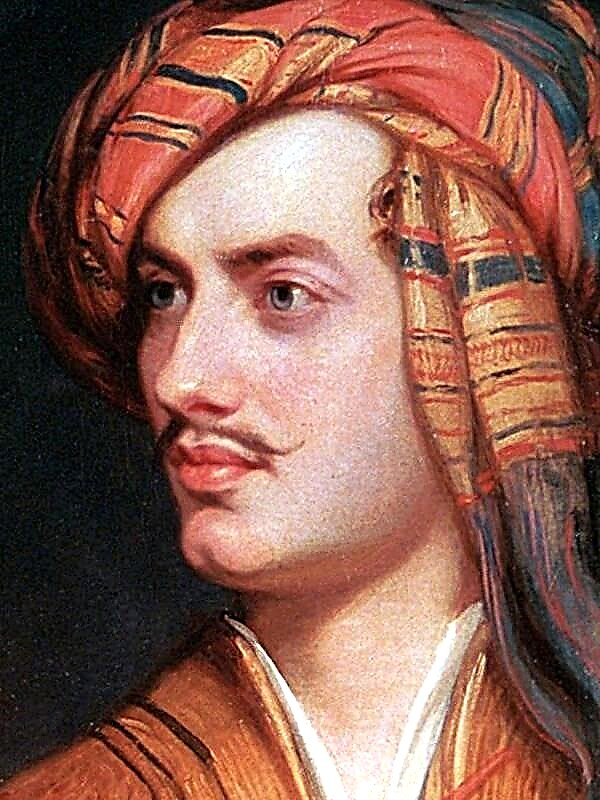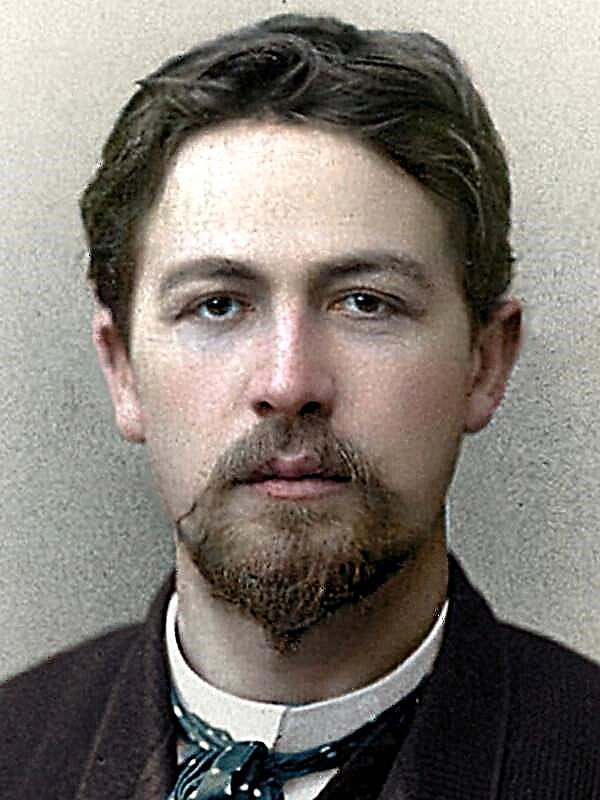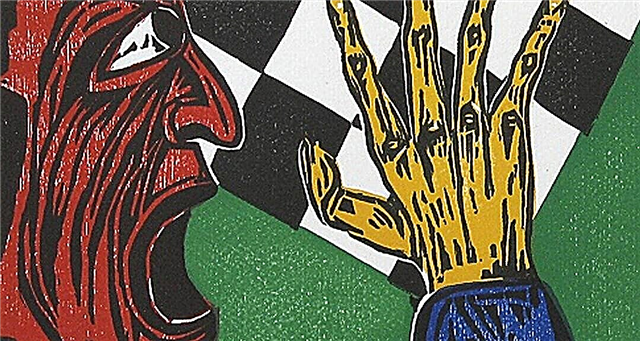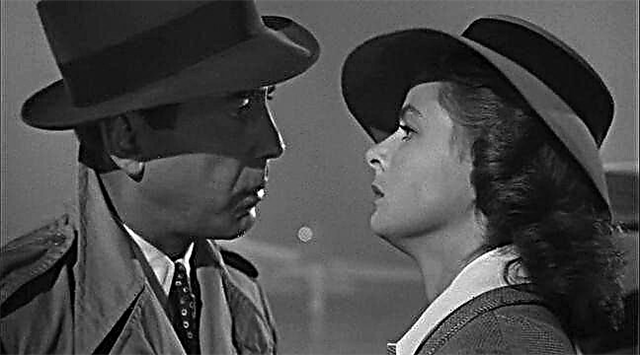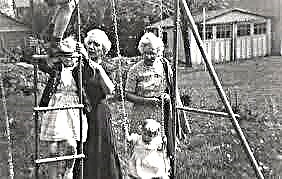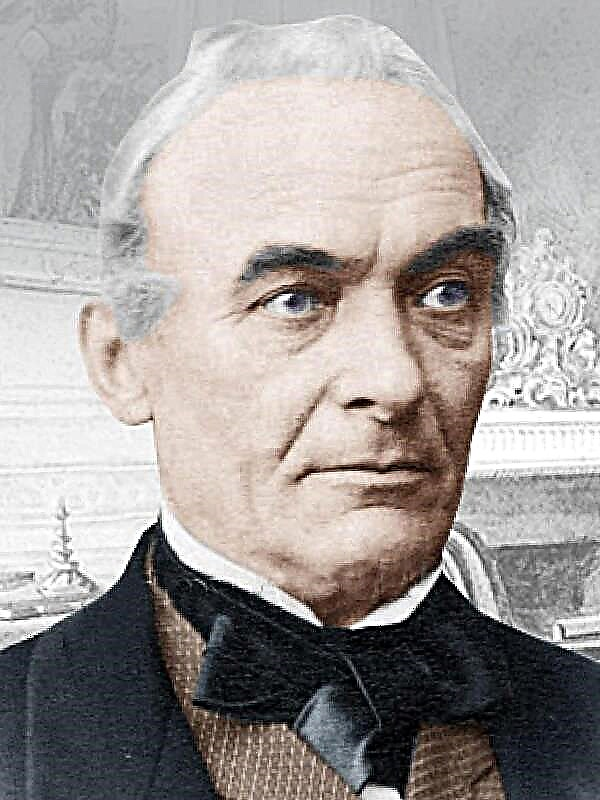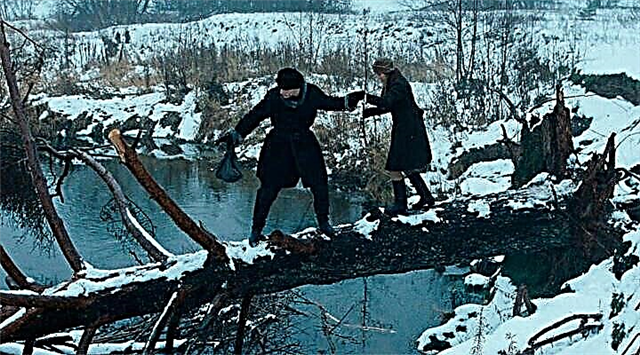How to make a readers diary? Before answering, you need to think: “Why keep a reader's diary?”. It is this question that students grumble under their breath, filling out several notebook sheets by hand. But a diary is not just a whim of teachers.
Why is it needed?
In elementary school, this method helps to teach the child to work with texts, understand and memorize what he read. The ability to extract a very short content from a large text, to structure information using a template - all this is considered the basic skills for successful self-education. In the future, the reader's diary helps a lot in comprehending the works and the thoughts that the author invested in them. This is a complex function of human thinking, which forms the ability to independently compose deep thoughts on certain issues. Therefore, she also needs training. Adult people, using the reader's diary, for example, can conduct a psychological analysis of themselves, describing what was hurt in the book, what seemed interesting, and what they didn't like at all.
So, the reader’s diary is a kind of “Map of looters” from Harry Potter, it must be used wisely. It is the deliberate application of such a technique that will give the most positive result not only in the quality of reading, but also in the quality of your thoughts.
How to lead?
How do people get the most positive effect on their readers' diaries? There is only one answer: in writing. There are numerous studies proving that writing by hand makes the brain work more actively, developing thinking and memory. We can conclude that it is better to keep a reading diary in writing, especially during the period of study at school, if you are concerned about the quality of the work you have done.
If we are talking about school, then each teacher has his own requirements on how to fill out a reader's diary. Sometimes this may depend on the class of study. But an approximate list of criteria for filling can still be deduced, here are the basic ones:
- Name of the author of the work;
- Title of the work;
- The year of writing the work;
- The genre of the work (poem, novel, story, etc.);
- Briefly the plot of the work.
These criteria can be supplemented and complicated. For example, it is permissible to indicate the main characters, their characteristics and their relationship with other characters in the book, and provide a biography of the author, if it is somehow connected with the work. Also in the criterion of the “year of writing” you can briefly cite historical information, for example, what was the situation in the country, what significant event is mentioned in the work (for example, when analyzing Turgenev’s novel “Fathers and Sons”, it is important to remember the abolition of serfdom in 1861 )
Brief paraphrases are desirable to write independently, as this will allow a deeper analysis of the work and better memorize the plot. Rewriting all the chapters in detail is not worth it. Describe the main actions of the work, mark important details, write out what is difficult to remember. Remember that in the future you will need to use the entries in the diary, so make them as clear and convenient as possible for you personally.
What is a review?
Feedback is one of the most interesting parts of the readers diary. Here you need to describe your own feelings, thoughts from a read book. What could be easier and more interesting? However, we recall that complex mental activity should be sufficiently developed so that a person can freely express an opinion on books. Therefore, at first, the child can slander his answers to questions that the parent will write down for him. With each review, the child’s business is easier, and he can already write down the answers, following a clear structure. Over time, the student becomes bored to follow the pattern, and this is a clear sign that you can try to write a free review, without a rigid framework. At this stage, it is also necessary for someone to read and correct the reviews, showing the child how to enrich the written language. As you can see, such a complex, team work helps not only to facilitate the student’s future work, for example, on essays, but also reveals his literary talents.
Here are examples of questions that can be answered in the recall:
- What is the main idea of the work?
- What do you remember the main characters? What are their character traits, actions you have caused emotions?
- What do you remember from the book?
- What seemed unusual?
- What moments in the book made you think?
- What did you think about after reading the book? What did the book teach you?
- Do you want to reread the book again and why?
- Do you want to read books by the same author? Which of them?
- Would you recommend this book to others? Why?
- Draw parallel events of the book with other cultural works (books, cinema, animated series, paintings, etc.).
This list of questions can be used as a plan for feedback, adjusting it to the level of the class in which the student is studying. A free-style review is more like a small essay, in which, of course, there is a beginning, middle and end. However, to demonstrate writing talent in this format is much easier.
Design Example
We will briefly discuss the external design of our recordings, as it can become a separate practice for the development of creative abilities. Of course, the design of the reader's diary also depends on the requirements of the teacher, but even ordinary tablets can be interestingly and vividly decorated.
If you like to draw, then you can draw sketches on a work, draw portraits of heroes. This also helps to memorize and comprehend a work well, and many artists often take the plot and inspiration from books. So do not be afraid to colorfully design a reader's diary.
Next, we list examples of reading diaries for each class.
1 class
- Name of the author of the work: Kataev Valentin Petrovich;
- Title: "Flower-seven-flower";
- Year of writing: 1940;
- Genre: Tale;
Main characters:
- Girl Zhenya,
- The old woman (gave Zhenya a seven-flower)
- Zhenya's mom
- Vitya (the lame boy whom Zhenya helped).
Very short summary:
Eugene goes for bagels. On the way to her ran a dog who ate all the bagels. The girl later noticed the loss, so she tried to catch up with the dog. As a result, she was in an unknown place. She met an old woman. She felt sorry for Zhenya, and gave her an unusual, magical flower with seven petals. If you tear one of them along with the spell, then any desire will be fulfilled. Eugene thanked the old woman for such a generous gift, but she did not know how to get home. The girl had to tear off the petal, read the spell and make a wish so that she returned home with bagels. And so it happened! Eugene decided to put such a wonderful flower in a vase, but accidentally broke her mother's favorite vase. Mom heard a noise, the girl was frightened of punishment, so with the help of a flower she restored the vase. Mom did not suspect anything and told Zhenya to go for a walk in the yard. The girl wanted to prove to the boys in the yard that she would stay at the real North Pole. She made a wish with the help of a flower and found herself at the cold pole, where she met real bears! She was frightened and made a wish to return back to the yard. Then Zhenya saw toys in the girls' yard. Having envied, the heroine guessed herself all the toys of the world. And they began to crumble from all sides, fill all the space that the child had to make up, so that it all disappeared. Now Zhenya has only one petal left. She began to think how to spend it wisely. I wanted sweets, then new sandals. Suddenly Zhenya saw a good boy Vitya on the bench. The girl called him to play, but he could not, because he was lame. Then Zhenya thought that Vitya would be healthy. He recovered right away and began to play with his savior.
Feedback:
The main idea of the work, it seems to me, is that it is not worth wasting opportunities on all sorts of trifles. Eugene spent as much as six petals on trifles and on the desire for someone to prove something. Thanks to these actions, I did not like Zhenya, but when she helped Vita, I was happy. I remember how Eugene made all the toys of the world, and they fell on her from all sides. After all, when she made all the toys, she did not think about how much it was. The most unusual thing in the work is how easily the scene of action changes inside it. Eugene is in the yard, then at home, then at the North Pole. This book taught me compassion, kindness, mutual assistance, help. First you need to think about others, about the important, and not about fleeting desires. Of course, I would recommend this book to other children, and maybe even their parents. Because by the example of Zhenya, the harm of egoism is clearly visible.
2nd grade
- Name of the author of the work: anonymous;
- Title of the work: “The Frog Princess”;
- Year of writing: unknown;
- Genre: Russian folk tale.
Main characters:
- Ivan Tsarevich (youngest son),
- Vasilisa the Wise (turned by Koschey into a frog),
- Baba Yaga
- King,
- Elder and middle brothers,
- The wives of the brothers
- Koschei the Deathless.
Very short summary:
The king called for three sons. He informed his sons that they needed to look for brides. He proposed to make searches in this way: to shoot an arrow, where it falls, there will be a wife. The eldest son - the daughter of a boyar, the middle one found the daughter of a merchant, and the youngest, Ivan Tsarevich, brought a frog. We played weddings. The king came up with the instructions to the sons of the wives. To bake bread, then create a carpet. The best bread and carpet came out precisely from the wife of Ivan Tsarevich, the frog. Then the King said that sons should come to the royal feast in order to see which wife dances better. Ivan the prince went to the feast alone, as the frog princess told him. And suddenly a gilded carriage arrived for the holiday, and Vasilisa the Wise came out of it. And the Princess turned out to be better in the dance. But Ivan Tsarevich returned to the house from a feast earlier, found the skin of a frog and burned it. Vasilisa the Wise realized herself, but there is no skin anywhere. She turned into a swan, but flew away, saying that she would find Ivan Tsarevich in the kingdom of Koshchei the Immortal. Ivan Tsarevich was grieving, but he was about to leave. On the way he met the Old Man, who told him how he enchanted the Princess Koschey the Immortal. He gave the traveler a magic ball that would show him the way. Thanked Ivan Tsarevich the Old Man and hit the road. He brought his glomerulus to the Hut on chicken legs, and in it Baba Yaga. She told me how Koshchei defeated. And, having fulfilled all the conditions, Ivan Tsarevich defeated, crumbled the ashes of the Immortal Koschey. He found Vasilisa the Wise, took the best horse from the stables and returned with his beloved to his native kingdom.
Feedback:
The fairy tale “The Frog Princess” teaches us that you should not judge anyone only by the outer shell. Although Ivan the Tsarevich was shy of the Frog Princess, she was the best at coping with the Tsar’s instructions. Each time, the Frog patiently, without resentment, reassured the mourning Ivan Tsarevich when he returned from the Tsar with the next task. Therefore, I think that this tale is also about trusting loved ones who want only good for you. I remember how the wives of the elder and middle brother repeated after Vasilisa the Wise and hid bones, wine and other leftovers in their pocket, not knowing why she was doing this. As a result, they found themselves in a stupid situation, and the moral is simple: it is not worthwhile to repeat thoughtlessly for someone. I also thought about how generous the Old Man was that he helped Ivan Tsarevich by giving him a magic ball. This teaches us that we need to help others in difficult situations, if there is such an opportunity. Therefore, I want all the children to read Russian folk tales, which preserved simple and important life values.
3rd grade
- Name of the author of the work: Vladimir Fedorovich Odoevsky;
- Title of the work: “The City in the Snuffbox”;
- The year of writing the work: 1834;
- Genre: a fairy tale.
Main characters:
- Misha,
- Daddy
- Mama
- Bell boy
- Mr. Valik,
- Queen of Spring,
- Hammers.
Very short summary:
Dad showed his son Misha a wonderful snuffbox. On its cover was the magical town of Ding-Ding with golden houses. Dad touched the spring, and beautiful music began to play. There were bells and mallets under the lid of the snuffbox. Misha wanted to visit such a wonderful town. Daddy said that you need to carefully monitor the device inside the snuff box, but in no case touch the spring, otherwise everything will break. The boy watched, watched, and suddenly the bell called him from town to visit. Misha immediately accepted the invitation. The bell showed Misha how perspective works, and the boy understood how to draw Mama playing the piano and Papya sitting on the armchair. Bell then introduced the guest to the other bell boys. Misha told them that they live well: no lessons, no teachers, music plays all day. The bells objected that they were very bored, as they had nothing to do all day, there were no pictures, books, dad, mom. Moreover, evil uncle bells knock on them! Misha felt sorry for his new friends, asked the hammers why they were doing this to the bell boys. And the uncle mallets answered that they were being ordered by a certain Mr. Valik.
The hero went straight to him, and Mr. Valik was lying on the sofa, but he was spinning. And Valik said that he is a kind warder and does not order anything. And suddenly the boy saw Queen Pruzhinka in the golden tent, who was pushing Mr. Valik. Misha asked her why she was pushing Valik sideways, and Pruzhinka replied that without this nothing would have worked and the music would not have played. Misha wanted to check if she was telling the truth, but pressed the queen with a finger. And the spring burst! Everything has stopped. Misha was frightened, because Dad did not order the spring to be touched, and from this he woke up. Nearby were Papa and Mom, he told them about his dream.
Feedback:
Odoevsky’s tale is interesting in that it tells in an entertaining way about complex, maybe even boring, events. The mechanism of the snuff box is shown figuratively, which proves that all phenomena are interconnected, each detail is important in the common cause. I remember the main character, Misha, because he is very well-mannered, politely communicates with every hero, even with evil uncle-hammers. It is worth taking an example from him. I remember the episode when the Bell showed Misha how perspective works and now the boy knows how to place the details on the sheet. It’s also interesting that the bell boys only played all day, and this makes them bored. This shows the need to love the work and benefits that are in our lives, because it is they who give it meaning. Of course, I want to recommend this tale to others, because it is kind, interesting and unusual.
4th grade
- Name of the author of the work: Anton Pavlovich Chekhov;
- Title of the work: Thick and thin;
- Year of writing: 1883
- Genre: Story
Main characters:
- Porphyria (thick),
- Michael (thin),
- Louise (wife of Michael),
- Nathanael (son of Michael).
Very short summary:
Somehow I united the station on the Nikolaev railway of two people who had not seen each other for a long time. Friends who studied together at the gymnasium, fat Porfiry and thin Mikhail were very happy about this meeting. They remembered how they teased someone, how they looked in their youth. Thin introduced Tolstoy his wife and son. But now, my friends talked about who had reached whom. Thin Mikhail has been working as a Kollegsky assessor for two years, and Tolstoy Porfiry is already a Privy Councilor. Thin did not expect this, and therefore immediately began to turn to his old friend as the boss.Tolstoy did not like such a change in friend; he felt unpleasant, but Tonky continued to communicate in the same tone. Therefore, Porfiry decided to end the conversation, and Tonky was surprised at the family with such a high-ranking friend.
Feedback:
I love the stories of Anton Pavlovich Chekhov, because in them figuratively, funnyly, in detail, various situations from life are shown. For example, the story “Fat and Thin” shows how pure friendship is distorted under the influence of reverence. As soon as Tonkiy found out about the rank of Tolstoy, he immediately began to babble before him, although Tolstoy asked not to do this, because the posts in such a pleasant meeting are not so important. However, shattering to the authorities was very familiar to the Thin, so he continued to behave this way. Thin could have behaved differently, then, I think, and the conversation between friends would have turned out differently. Of course, I advise everyone to read this story. In general, I want to read all of Chekhov's stories, because they are funny and interesting.
5th grade
- Name of the author of the work: Ivan Sergeevich Turgenev;
- Title of the work: “Mumu”;
- The year of writing the work: 1854 (The story is based on a real story that happened in the house of Varvara Petrovna Turgeneva - the mother of the writer. The prototype of Gerasim was a serf Andrei, nicknamed Mute).
- Genre: Story
Main characters:
- Gerasim
- Mu Mu,
- Lady,
- Gavrila
- Kapiton Klimov,
- Tatyana.
Very short summary:
A lonely lady lives in a house on a deaf Moscow street. She serves as a janitor Gerasim - deaf-mute since birth. Conscientiously performed his work and lived separately from other servants. A year later, the lady decides to marry the drunkard of the shoemaker Kapiton Klimov to the pretty blond washerwoman Tatyana. But the girl likes Gerasim. The butler Gavril, who was entrusted with the task of bringing everything to the wedding, is afraid of Gerasim, and is thinking how to discourage him from the bride. He persuades the girl to pretend to be drunk, since Gerasim does not like drunks, and pass him by. The insidious plan works, Gerasim, tormented, abandons his love. The wedding between Capiton and Tatyana took place, but a happy family did not work out. The lady sends the couple to another village. Touchingly Gerasim gives Tatyana a red handkerchief, wants to carry her out, but hesitates.
When Gerasim returned, he saved a drowning puppy. Nursed him. The dog quickly becomes very beautiful. Gerasim called her Mumu. The lady noticed the dog and ordered her to be brought to her, but Mumu got scared and began to growl. The lady got angry and ordered to get rid of the dog. The footman sells it, but Mumu herself returns to Gerasim. Then Gerasim realized that all this was the work of the mistress, therefore hiding the dog. But all in vain. Gavrila gives Gerasim the order of the lady. Gerasim takes on this terrible business. He feeds Mumu, swims out to the river with her, says goodbye and throws him into the water. After that, he hastily packed his things and leaves for his native village, where he was welcomed.
Feedback:
The sad story of Ivan Sergeyevich Turgenev inevitably leads to reflection. At the whim of the lady, Gerasim is torn from his usual life, he suffers the humiliation and intrigues of other servants. Starting with the touching love story of Gerasim, you cannot help but empathize with this hero. Not only that, by his decree, the lady did not create family happiness between the two servants, she also robbed Gerasim of her love. The mistress treats her peasants as puppets: either she orders to marry, then she freely disposes of Gerasim’s dog without asking him. What patience is Gerasim! He carried out the cruel order of the lady, which the dog did not please, but at the same time left, showing his disobedience to her orders. Yes, Gerasim committed a terrible act, killing Mumu, because he could have gone with her to his native village. But the execution of the order shows all the dependence of the peasants on the master, which makes their life independent of themselves. Is Gerasim sorry? I personally feel sorry for him. It is a pity for other characters who fell under the tyranny of a bored lady. A very sad story that I would not recommend reading to those who are severely injured by the death of animals. From additional sources, I learned that the story is based on real events that took place in the house of Turgenev’s mother. And from this fact it becomes even worse.
6th grade
- Name of the author of the work: Alexander Sergeevich Pushkin;
- Title of the work: “Dubrovsky”;
- The year of writing the work: 1841 (The story was based on the story of a friend of Pushkin about a poor nobleman who had a process with a neighbor for the land and was expelled from the estate. Left with some peasants, he began to rob).
- Genre: novel
Main characters:
- Andrey Dubrovsky,
- Kirila Troekurov,
- Vladimir Dubrovsky,
- Masha Troekurova,
- Prince Vereisky.
Summary:
Kirila Petrovich Troekurov lived in the old estate. He is rich and has great connections. He was spoiled, had a limited mind. Andrei Gavrilovich Dubrovsky, once a friend of his, used to visit him. But the neighbors are quarreling. Troekurov uses his connections and robs Dubrovsky of his estate. This drives the poor Dubrovsky crazy, and he begins to be ill. The misfortune is reported to Vladimir, the son of Dubrovsky, and he urgently goes to his dying father. As a result, the old man dies, Vladimir, in desperation, sets fire to the estate, which burns with the judicial officials there. He and his peasants go robbing into the woods. After he agrees with the French teacher Deforge, and instead of him gets a tutor in the house of Troekurov. Soon, feelings arise between him and the daughter of Troekurov Masha. But Troyekurov gives a very young daughter to Prince Vereisky who has lived for half a century. Dubrovsky wants to free the girl from marriage against her will. But it turned out too late. Surrounding the prince’s crew with his accomplices, Vladimir frees Masha, but she says that she has already sworn an oath and cannot break her. Dubrovsky was wounded by the prince, asks his robbers not to touch the newly made groom and leaves. After he hides abroad.
Feedback:
Roman Alexander Sergeevich Pushkin "Dubrovsky" may appeal to many who read it at school. It has a gang of robbers and their deeds, love that has barriers, terrible stories, for example, trials of guests by Troekurov. Of course, I did not like the finale, since I would like to wish only happiness to the brave Dubrovsky, ready to make big sacrifices. But after some thought, you realize that the novel could not end otherwise for the heroes. After all that Dubrovsky had done, would the prince and Troekurov just leave them alone with Masha? And how would Masha refuse an oath? I don’t think so. It seems to me that Pushkin just showed that after noble, but robbery acts in real life of Robin Hood, happy love does not await. Yes, Vladimir does everything possible from him. An ordinary and honest person has to become a robber, and this is the only way out in the circumstances to protect the honor of the family. The lawlessness of the peasants and the tyranny of the landowners is another topic that Pushkin showed in the novel. Be sure to read another book by Alexander Sergeyevich, for example, the novel "The Captain's Daughter." I want as many people as possible to get acquainted with this great author.
Conclusion
Reader's diary is a real assistant for reading and educated people. In an age of enormous flow of information, the skill of careful reading is simply necessary to stay on the crest of a wave. In this case, keeping a diary can help, from an early age helping us to work with various texts.
Therefore, we hope that our advice will help you differently, take a creative look at the reader's diary and fully appreciate the full benefits of its maintenance.
If you still don’t understand something, or you need help in designing a readers diary, write about it in the comments!

